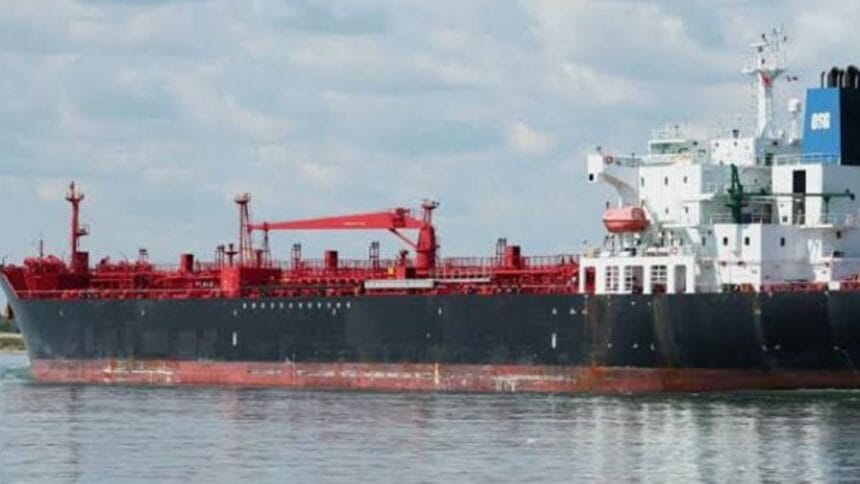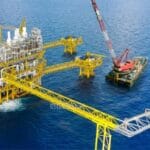“Dangote, PH refineries, alongside imports, drive competition in Gulf of Guinea market” – Argus Media VP
Oredola Adeola
As Nigeria’s petroleum products market is becoming more structured and transparent with the coming onboard of local refiners, Argus Media, an independent provider of market intelligence and price assessments, has announced plans to phase out EuroBob as a reference point for pricing fuel imports, citing the evolution of market-based pricing for petrol and jet fuel in West Africa.
Mr. James Gooder, Vice President of Crude Oil at Argus Media, disclosed this development during a recent webinar organized by the Major Oil Marketers Association of Nigeria (MOMAN) with energy correspondents.
Gooder in a presentation on “Market Trends, transparency and Fair Pricing” highlighted the pivotal role of logistics and pricing parameters in determining the cost of Premium Motor Spirit (PMS) in Nigeria.
He noted that the commencement of fuel production by Dangote, Port Harcourt and other modular refineries are driving competition with imported products, fostering a competitive and transparent market for diesel and petrol across the Gulf of Guinea.
“The market dynamics are changing rapidly. Buyers and sellers in the Gulf of Guinea are now trading products and paying market-driven prices,” Gooder explained.
Vice President of Crude Oil at Argus Media further emphasised that West Africa’s market has matured to the extent that Argus Media can now publish daily diesel price assessments specifically tailored to the region.
“These prices are based on trading activity and market data within West Africa, including fob (free on board) assessments for offshore Lome, Togo,” he said.
Gooder emphasized that Argus Media is committed to providing transparent and reliable pricing benchmarks that reflect the realities of the West African market.
“We can now benchmark Nigerian gasoline prices independently of EuroBob,” he said, adding that Argus Media aims to expand its market-based pricing for petrol and jet fuel.
Gooder noted the region’s petroleum products’ market growing independence from European price benchmarks.
He said, “Rather than West Africa and Nigeria relying on prices set far away in Europe, we are witnessing the emergence of a domestic or regional market where multiple players interact and effectively set prices through competition,” Gooder explained.
He highlighted the Gulf of Guinea as a focal point for this evolution, where buyers and sellers negotiate prices based on local trading activity.
“This is how pricing should work—driven by market dynamics within the region, and Nigeria is now firmly plugged into these dynamics.”
Gooder pointed out that this development is particularly evident in petrol pricing. “On petrol pricing, we are already seeing this shift take shape,” he said.
“This is a pleasing development, as Nigeria’s pricing model is aligning with international market standards, thanks to the contributions of the Dangote Refinery and other importers.”
The ongoing transformation, according to Gooder, signifies a broader trend toward competitive and transparent markets in West Africa.
He reiterated that these changes are creating a robust framework for pricing, driven by local and regional market activities rather than distant benchmarks.
“This is a significant step forward for Nigeria and the wider West African market,” Gooder
Advisors Reports’ check showed that Argus EuroBob price assessment used to reflect the market value of this gasoline blendstock, making it crucial for transactions in northwest Europe.
In Nigeria and other West African countries, EuroBob serves as a reference point for pricing gasoline imports.
The Argus EuroBob price assessment is used not only for physical transactions but also for financial products and contracts within the oil market.
Explaining how global, seasonal, and structural dynamics are shaping the market, Gooder said, “While petrol prices in Nigeria remain high due to the deregulation of the downstream sector and the devaluation of the naira against the dollar, we are seeing notable shifts.
“In absolute terms and relative to crude, the price of petrol is coming down.
Historically, this decline aligns with the onset of winter in the Northern Hemisphere, where demand for gasoline typically decreases as people drive less,” Gooder explained.
He therefore emphasised that peak gasoline demand occurs in the summer months, particularly in April and May, with consumption tapering off in the third and fourth quarters of the year.
“Refineries tend to reduce petrol production in the winter months due to lower demand, which contributes to the seasonal drop in prices,” Gooder said.
Speaking on the current high cost of petrol in Nigeria, largely attributed to foreign exchange challenges and the cost of living, Gooder gave hope about drop in price.
According to him, “Outright petrol prices, measured in dollars per tonne, are falling.
This decline is happening even amidst global crises, including geopolitical tensions in the Middle East.
Over the course of 2024, we’ve observed a downward trajectory in petrol pricing, and with steady crude oil prices, it’s not impossible to see this trend continue,” he said.
Gooder emphasized that Nigeria’s petrol market remains import-dependent, with pricing tied to the Northwest Europe benchmark plus freight costs to Lagos.
“The Dangote Refinery is ramping up production, but imported products still dominate the market,” he said.
“However, the strengthening of the naira, supported by increased dollar inflows into the Nigerian economy and a competitive product market, is beginning to ease pricing pressures.”
On the structural front, Gooder pointed to increased competition and transparency in the Nigerian market.
“For a long time, international traders and suppliers had access to more market information than local buyers and consumers. Now, with multiple market participants entering the space, we’re seeing a shift.
“The dominance of the NNPC as the primary buyer has diminished, and information about prices from different players is becoming more widely available.”
Gooder noted that the evolving market structure benefits retailers and consumers alike.
According to him, “As more players and supply chains emerge, operators are better positioned to offer competitive prices. This transparency and competition will ultimately drive down costs and create a more efficient market for everyone involved.”




